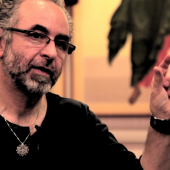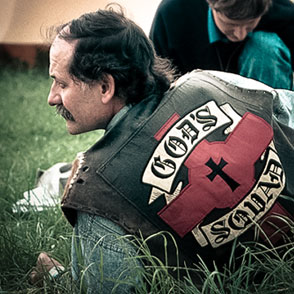 Here’s a fascinating new interview with Alan Hirsch, of the Forge Network, conducted by Sean Gladding for Asbury Seminary, a United Methodist seminary in Wilmore, Kentucky. In this first part of the interview, Gladding asks Hirsch if he has any hope for the mainline (specifically the United Methodist Church) in making the missional shift, and Hirsch responds by referring to the example of the explosive growth of the underground church in China:
Here’s a fascinating new interview with Alan Hirsch, of the Forge Network, conducted by Sean Gladding for Asbury Seminary, a United Methodist seminary in Wilmore, Kentucky. In this first part of the interview, Gladding asks Hirsch if he has any hope for the mainline (specifically the United Methodist Church) in making the missional shift, and Hirsch responds by referring to the example of the explosive growth of the underground church in China:
“The forms of the church, and that’s the key, the forms are taken out. Properties were confiscated. Seminaries were closed. Foreign missionaries were sent out. Leaders were killed or sent to work in Mongolia in mines or whatever else they did. So now all you have is peasants, largely, an uneducated group of people, and they discover these resources in themselves. And they end up actually looking very much like the early church in its phenomenology. …
“That, for me, fundamentally changes me. This sounds heretical, but for me, this is big. Because what I actually discovered is that every ecclesia has within it the potentials for what the New Testament envisages and promises. I’ll say it another way: Every church has everything it needs to get its job done. Because, by the power of the Gospel, by the power of the Holy Spirit, by the kingdom or the reign of God, it doesn’t need much more than that really. We think we need more than that. We think we need all the paraphernalia, we need the buildings. We don’t really. China says you don’t. …
“They grow from 2 million to 120 million in less than 80 years — go figure that one out! — without all the resources we think you need, hey, to get the job done. No Bibles, no seminaries, no formal leaders [who are] ordained.
“Actually, one of the most disturbing things about that is God has to take all the leaders out in order for the church to get it again, which actually makes me worry a bit.”
What do you think? Do you agree with Hirsch? Does every church have everything it needs? What about the notion of removing “formal leaders” from the equation?












